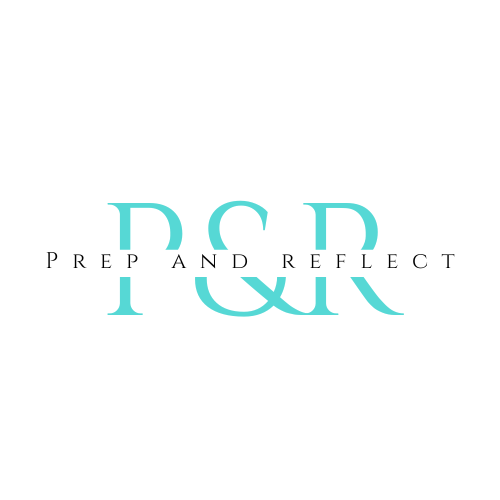The first year of teaching is a wild ride—equal parts inspiring, overwhelming, exhausting, and transformative. I look back on my first year with a lot of gratitude, but also with a strong urge to send my past self a survival guide. If you're a new teacher (or even a seasoned one needing a reset), here are a few things I wish I had known when I first stepped into my classroom.
1. Classroom Management Is Built in the First Two Weeks
If I could shout one piece of advice from the rooftops, it would be this: set your expectations and routines early, and stay consistent with them. The first two weeks of school are crucial for establishing the tone of your classroom. Students are learning what’s normal, what’s okay, and what isn’t. If you’re relaxed or unclear with boundaries and routines at the start, you’ll spend the rest of the year trying to undo that.
Don’t be afraid to pause content in order to teach and reinforce procedures. Practice transitions. Narrate behaviors you want to see. And most importantly—follow through. It’s not about being strict; it’s about being clear and consistent.
2. Include Students in Building Classroom Norms
I used to think I needed to walk in on day one with all the rules laminated and posted. I’ve since learned that one of the most powerful ways to build community and create buy-in is to involve students in setting classroom norms.
Ask them: What kind of classroom do we want to be part of? What makes us feel safe and respected? Have open conversations, brainstorm together, and co-create your class agreements. When students feel like they’ve had a hand in building the classroom culture, they’re far more likely to help maintain it.
3. Work Smarter, Not Harder When It Comes to Grading
Grading can easily eat up your evenings and weekends if you let it. One thing that helped me tremendously was creating grading systems that worked with my brain, not against it.
Instead of grading entire tests one by one, I’d grade the same page or section across all student papers. For example, I’d start with question one on all 25 papers, then move to question two. Not only was it more efficient, but it helped me stay consistent and objective. Tally the scores at the end, and you're done.
Also—give yourself permission not to grade everything. Focus your energy on assessments that guide your instruction or show meaningful progress.
4. Relationships with Students Matter More Than You Think
You can be the most organized, knowledgeable, and dynamic teacher in the world—but if your students don’t feel seen and valued, they won’t fully show up for you.
Take the time to get to know them. Ask about their interests. Learn their favorite snacks, sports teams, video games, or music artists. Greet them at the door. Notice when they’re having a rough day. Celebrate small wins.
When students know you care about them as people—not just as learners—they’ll trust you more, try harder, and contribute more meaningfully to your classroom.
5. Incorporate Mindfulness to Help You and Your Students Reset
The school day can feel like a marathon sprint. There’s always something to do, someone to help, something to prep. That’s why incorporating moments of mindfulness and stillness can be a game-changer.
Whether it’s a one-minute breathing exercise after recess, a mindful listening activity, or simply a moment of quiet reflection before a test, find ways to press pause throughout the day. These moments help your students regulate their emotions—and help you catch your breath, too.
6. Be Yourself—Not a Pinterest Version of a Teacher
There’s so much pressure to make your classroom look like a Pinterest board or to mimic the energetic, perfectly polished teacher personalities we see online. But the truth? Your students don’t need a copy of someone else. They need you.
Be yourself. Decorate your space in a way that feels calm, authentic, and sustainable for you. Design lessons that reflect your interests and teaching style. Infuse your personality into your classroom rituals, humor, and communication. The more genuine you are, the more your students will connect with you—and the more you’ll enjoy coming to school every day.
Final Thoughts
Teaching is hard. And beautiful. And worth it. I miss it every day. You will never do it perfectly, but you will make a difference. Lean into the learning curve, trust your gut, and give yourself grace. You’re not just teaching content—you’re building a space where kids feel safe, known, and inspired. That’s no small thing.











